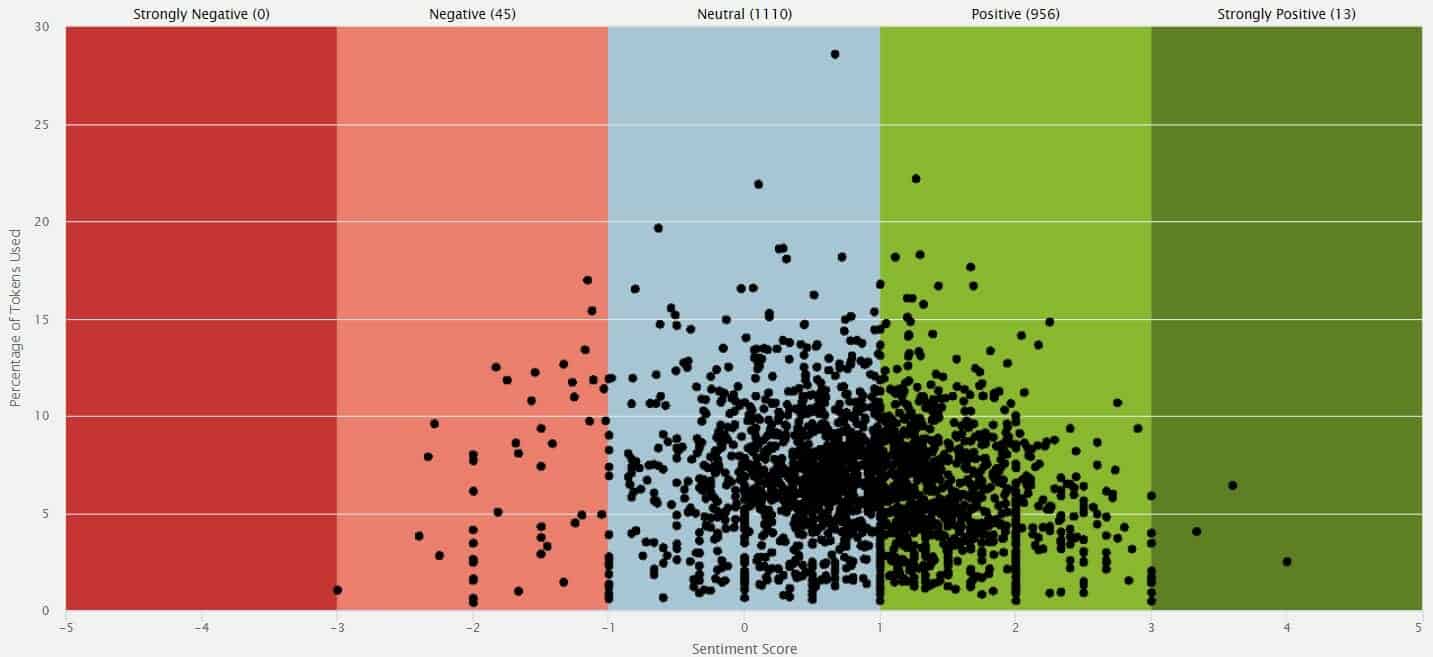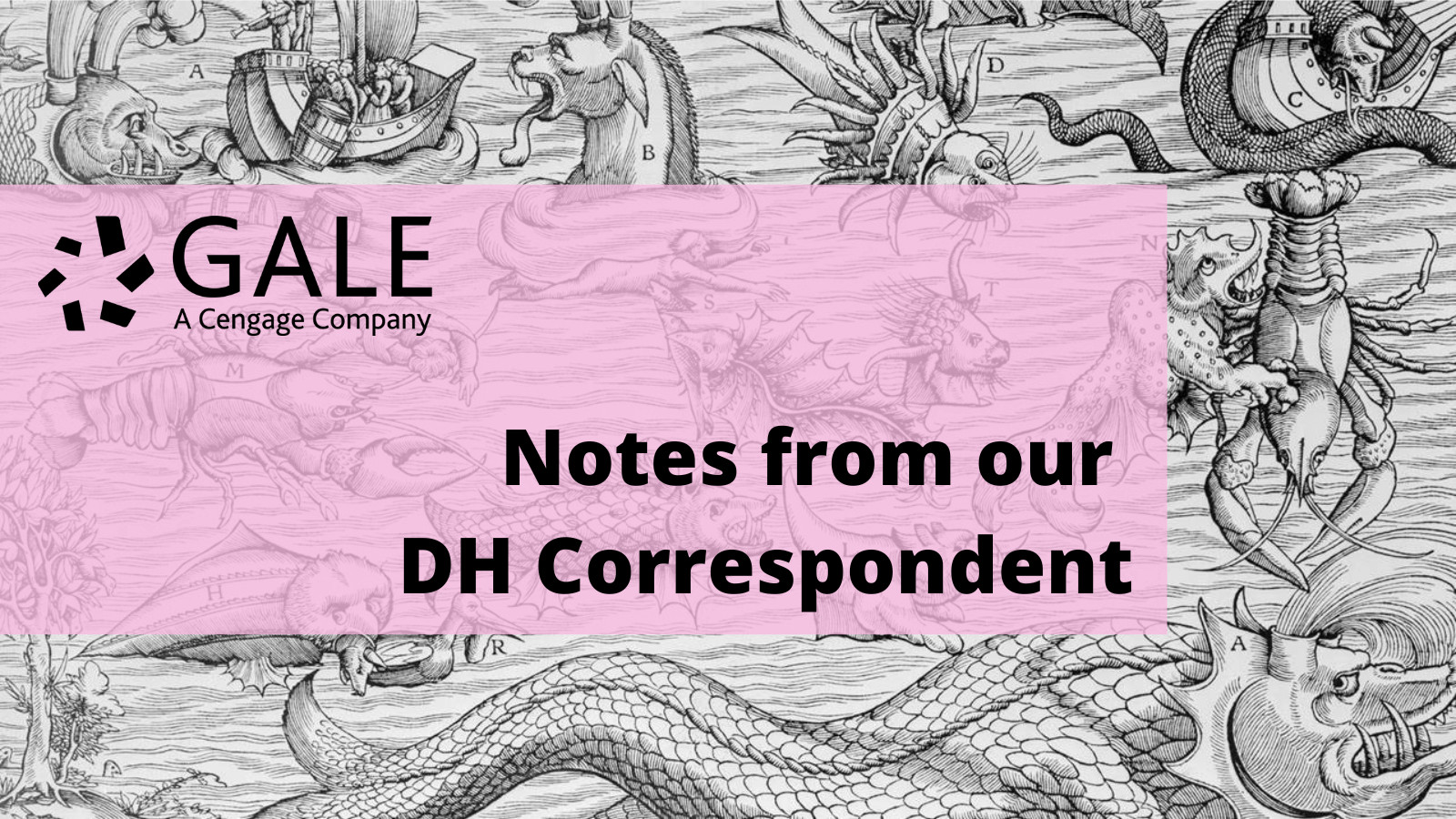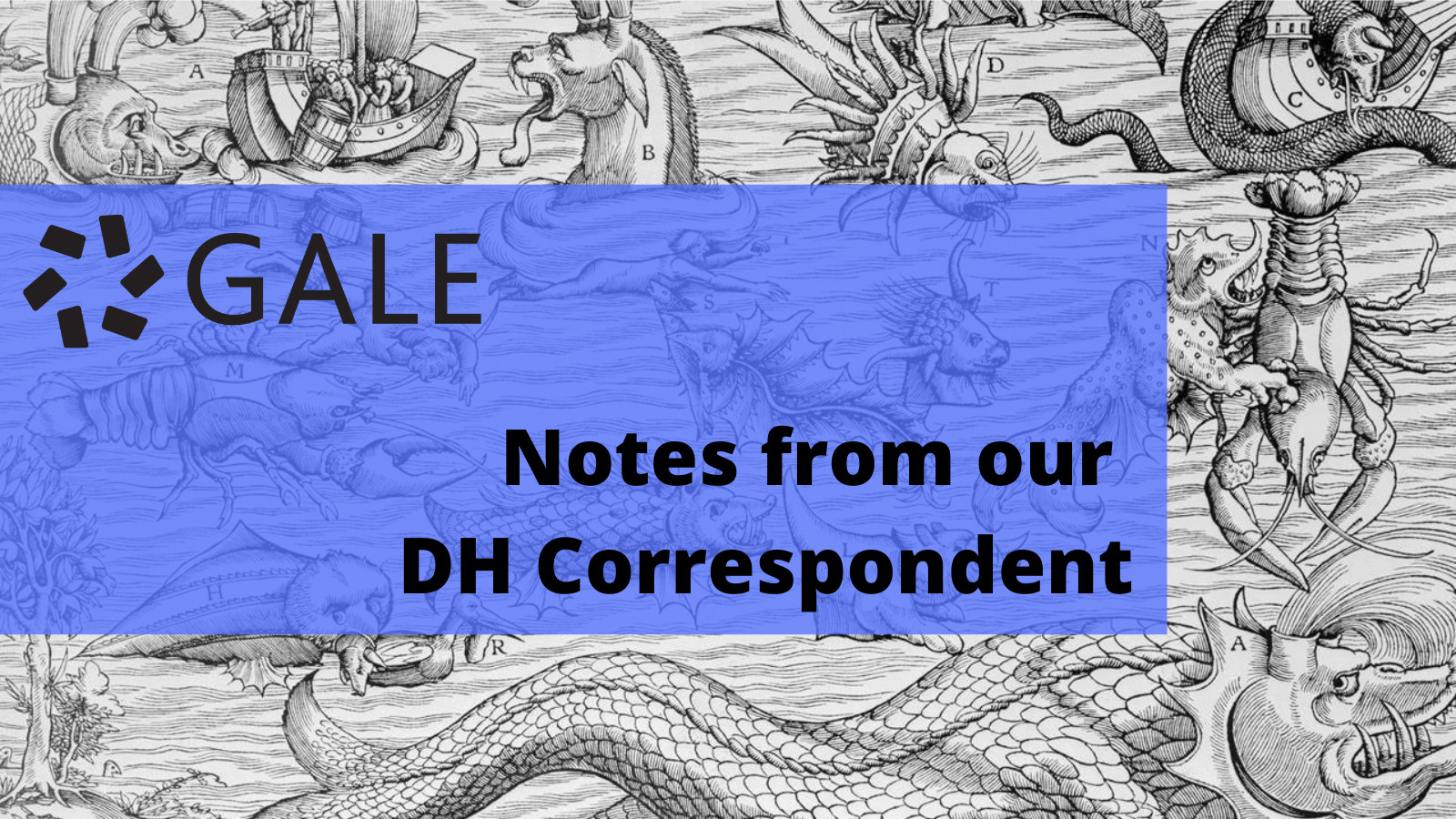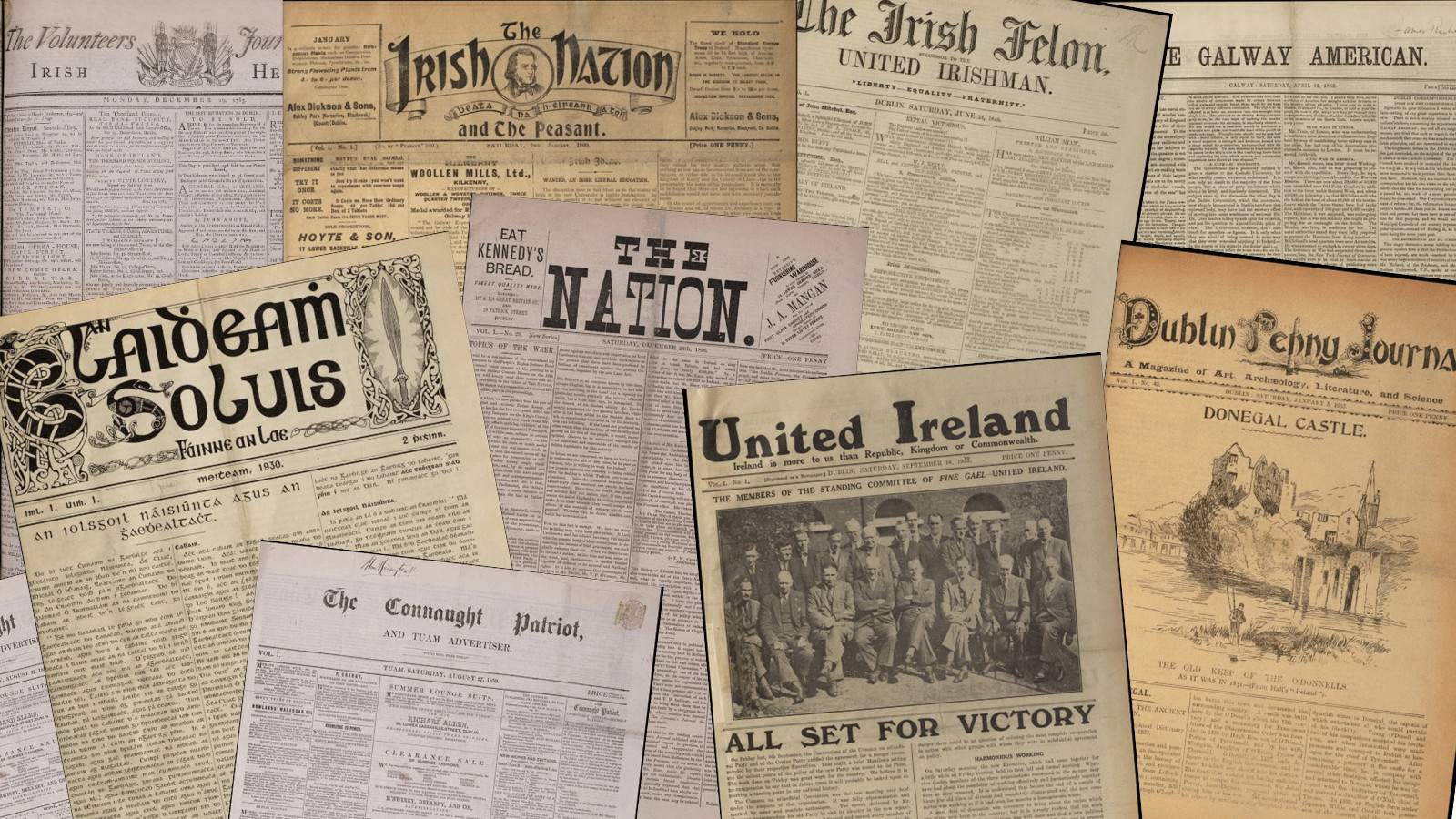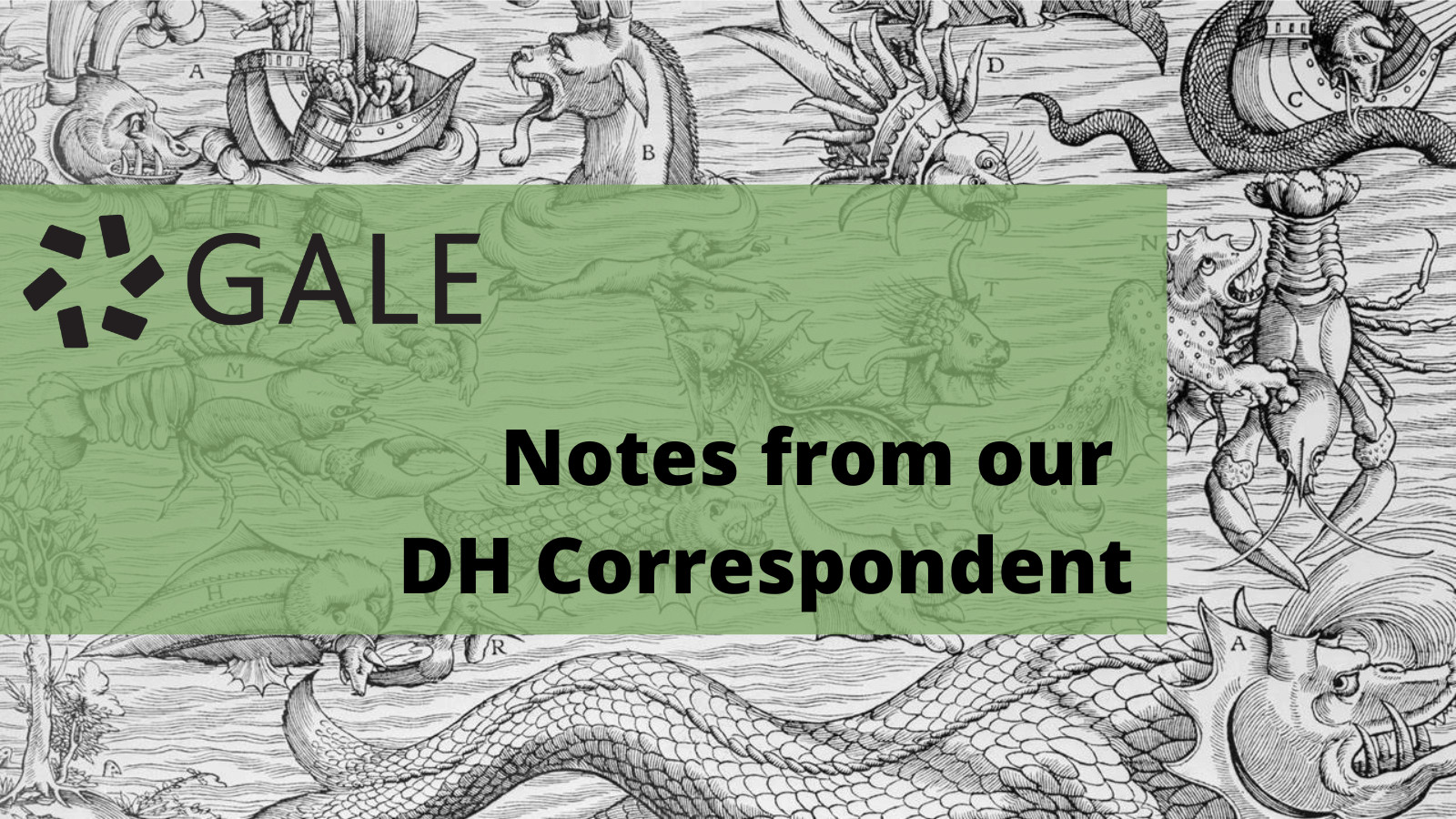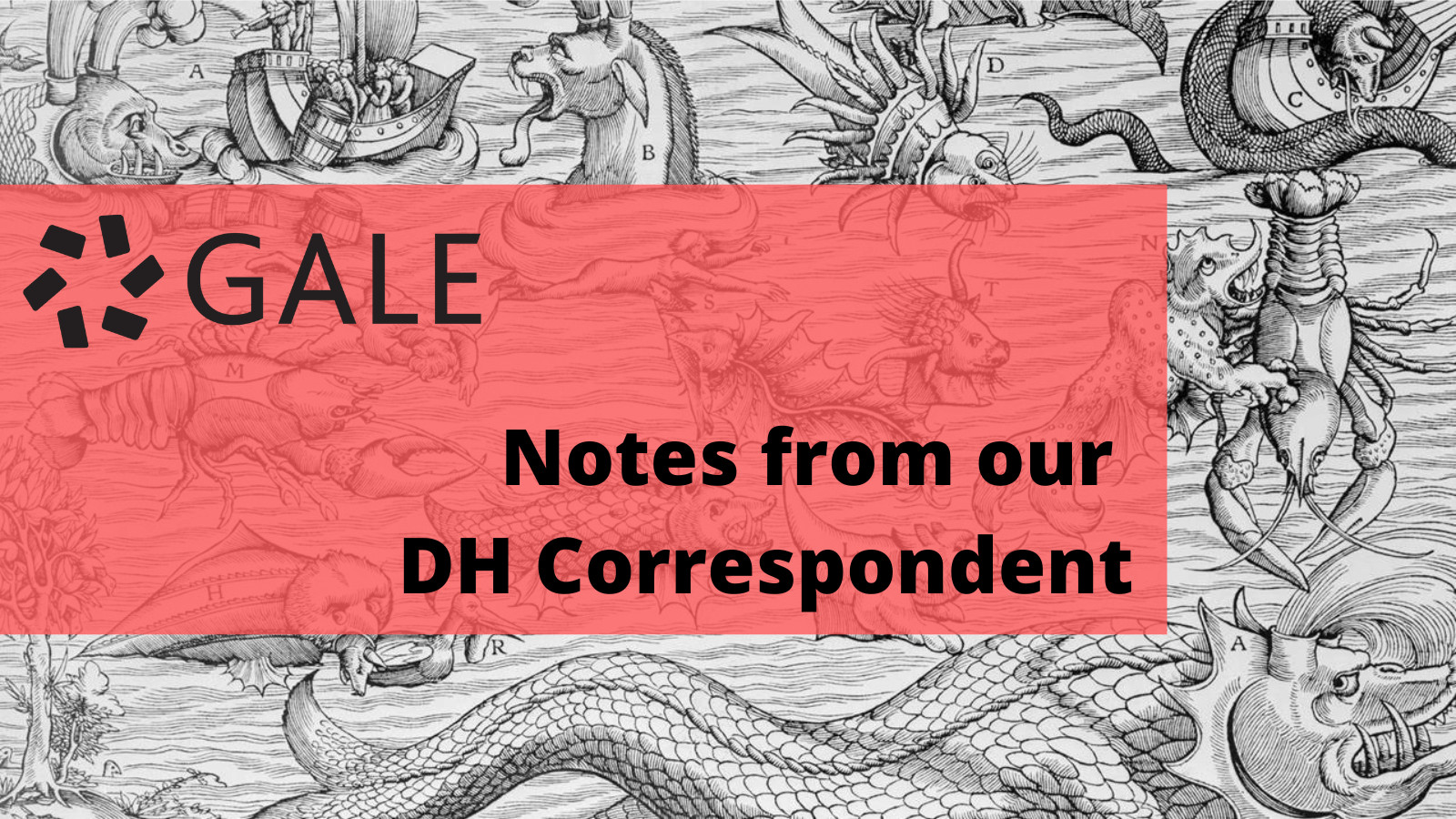│By Dr. Sarah L. Ketchley, Senior Digital Humanities Specialist, Gale │
If you speak with many Digital Humanists and discuss their route into the field, a large number will reference the training opportunities afforded by annual conferences, institutes, and workshops. These events provide a forum to develop new skills, with opportunities for hands-on practice. At the same time, attendees can learn about current project work, digital tools and methodologies and, importantly, these events provide an opportunity to mingle with peers. Digital Humanities conferences are somewhat unique in that they attract audiences from many academic disciplines, who all share the common interest of incorporating methods of digital scholarship into their research or pedagogical workflow. The Digital Humanities team at Gale is no exception, with many of us attending conferences, since our goal is to continue the ongoing development of Gale Digital Scholar Lab to ensure that it’s a relevant, functional and user-friendly platform. Many of the conferences have continued in an online format over the past couple of years, with a gradual shift back to in-person or hybrid gatherings.
As well as highlighting some of the main conferences and publications to be aware of as a Digital Humanist, this post will provide a range of resources for training, also sharing other useful networks like the Digital Humanities Slack channel. It’s not exhaustive but will provide a good starting point for those who wish to start their DH journey, brush up on existing skills, or learn about current research.
Read more

